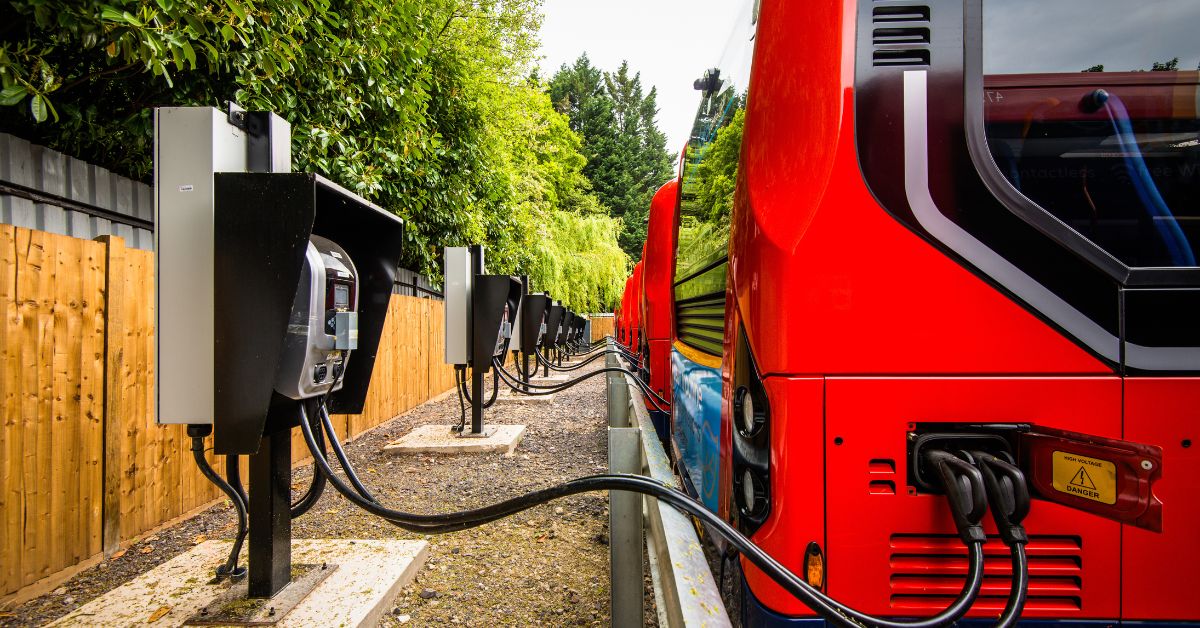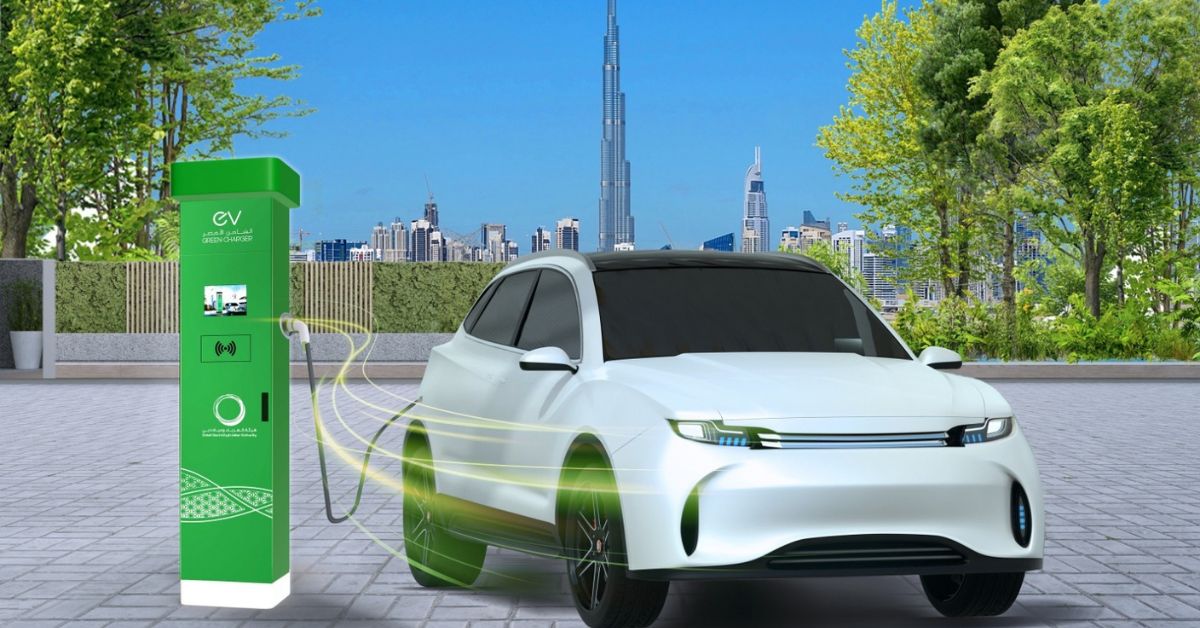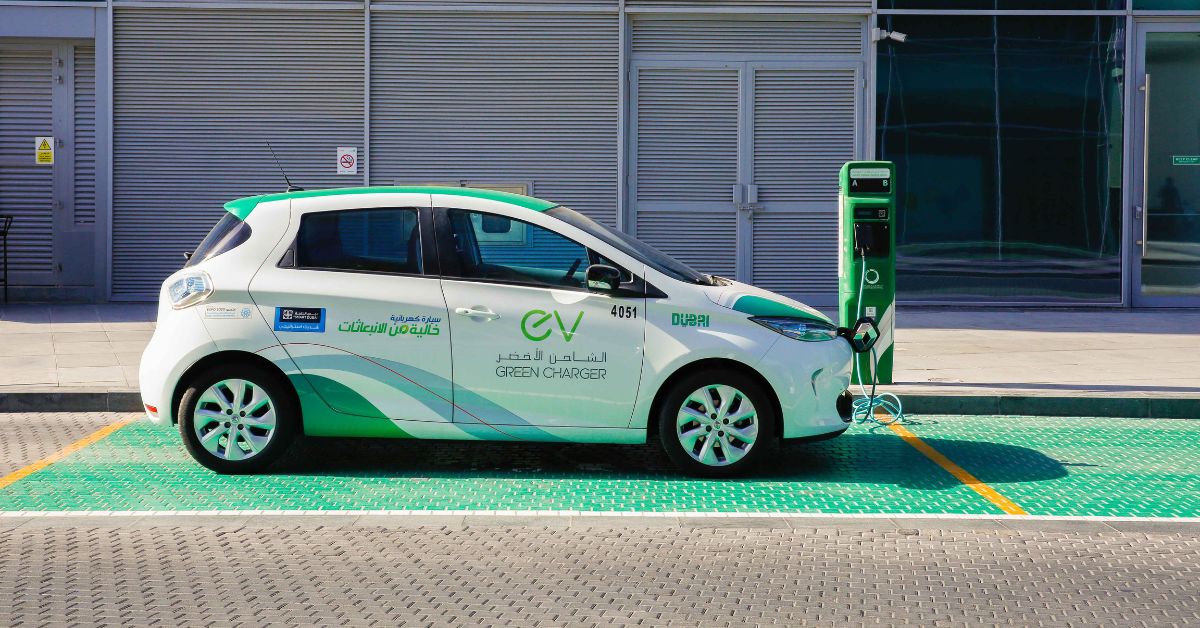DUBAI, UAE — Over a year ago, Slim Mekki, a Tunisian national residing in Dubai, opted to purchase an electric car. This wasn’t an impulsive buy. For a while, Mekki had been increasingly reluctant to spend large amounts of money on his gasoline-powered car. The monthly costs of fuel and maintenance were burning a hole in his pocket.
Although his decision was primarily financially motivated, not environmentally, he inadvertently joined a trend sweeping across the entire Middle East: substituting gasoline-powered cars with electric ones.
The region may have taken some time to overcome hesitancy towards adopting electric vehicles (EVs), but it seems the Middle East has finally shifted into high gear on the road toward a clean and green future. Last year, electric-vehicle sales hit a global milestone, securing nearly a 10 percent market share for the first time, driven by robust growth in China, Europe, and the US.
Adoption of EVs in the Middle East has been gradual due to various factors, such as a lack of government incentives, high initial costs of EVs, and limited charging infrastructure.
“The range of an EV with a fully charged battery still doesn’t compare to the range of an ICE (Internal Combustion Engine) vehicle with a full tank,” says Omar Moya, a Peruvian national and Dubai resident, who has been driving a Tesla Model 3 Performance since 2021.

An EV still needs to be charged at least twice as often as an ICE vehicle needs to stop at a gas station, which Moya perceives as a drawback. However, the ability to charge an EV at home is a notable advantage. For those who can charge at home, the experience surpasses that of an ICE vehicle. Moya likens it to having a “CAFU service at home every day,” with the added benefit that the electricity used at home costs less than fuel.
“In fact, in recent months, it’s become commonplace to find lines at EV charging stations. The number of EVs has risen faster than the charging infrastructure. That said, charging options are also increasing weekly,” Moya observed.
The GCC countries are now emerging as a potential growth market for EVs. In the UAE, the EV industry is rapidly expanding, with demand for EVs spiraling as consumers increasingly opt for sustainable and eco-friendly transportation.
The UAE market is one of the fastest-growing EV markets in the world.
Hasan Nergiz, Managing Director of Al-Futtaim Electric Mobility Company
According to Arthur D Little’s Global Electric Mobility Readiness Index 2022, the UAE’s EV market is projected to grow at a CAGR of 30 percent through 2028. The UAE has one of the highest levels of EV acceptance, with 30 percent of UAE residents strongly considering purchasing an EV to aid the green transition.
The UAE government has set a target: by 2030, 25 percent of all new vehicles sold in the UAE should be EVs, with an estimated 3,100 electric cars and 9,300 hybrid cars in Dubai by 2023.
The government plans to have 1 million EVs on the roads by 2035, marking a significant shift in the country’s transportation sector and aiding in reducing air pollution and greenhouse gas emissions.
“The UAE market is one of the fastest-growing EV markets in the world,” says Hasan Nergiz, Managing Director of Al-Futtaim Electric Mobility Company. According to the company’s internal group estimates, 12,000 to 15,000 EVs were sold in the UAE last year, out of a total of 225,000 passenger cars sold in the UAE.
“Six to seven percent of the total passenger cars sold were EVs, which demonstrates that there is still enormous potential for growth in this area. We estimate that in 2023, the total percentage of EVs sold in the UAE will reach 9 to 10 percent – amounting to 20,000 passenger car units in total,” he told TRENDS.
Even if EV components are sustainably produced, what about their operation? They still rely on electricity from thermal power plants fueled by fossil fuels, major contributors to climate change. EVs can only be deemed a solution if their entire lifecycle is sustainable.
Rouba Nassar, Sustainability Engineer
Nergiz noted that the pace at which the UAE’s national smart mobility and electrification objectives are advancing is genuinely impressive. This, along with vehicle connectivity, will be the largest disruption to the automotive industry this decade.
“Last month, the Ministry of Energy and Infrastructure announced the launch of the Global EV Market, a project designed to create incentives for people to own EVs and facilitate investment in the UAE’s EV infrastructure, thereby driving EV adoption across the UAE,” he added.
“With the UAE declaring 2023 the ‘Year of Sustainability,’ and the country welcoming world leaders later this year at the United Nations Conference of the Parties (COP28) Climate Change Conference, green mobility has become a priority agenda; the UAE government has committed to more zero-emission solutions and investments through the UAE Net-Zero 2050 Strategic Initiative,” he mentioned.
In Saudi Arabia, the government is targeting at least 30 percent of its cars to be electric by 2030, following its commitment to achieve net-zero carbon emissions by 2060. Last year, the EV manufacturer Lucid unveiled a long-term strategy to establish its first international manufacturing plant in Saudi Arabia, aiming to produce 150,000 vehicles annually at the King Abdullah Economic City.
However, the transition to EVs faces several challenges, with the most significant being the absence of a robust charging infrastructure.
The future of EVs in the region looks bright.
Omar Al-Zubaidi, Head of Genesis Middle East & Africa
To address this, numerous initiatives have been rolled out. Various countries are actively enhancing their infrastructure to support EVs. Governments are pouring investments into the development of charging stations in cities and along major highways.
For instance, the UAE has rolled out a comprehensive network of EV charging stations. The Dubai Electricity and Water Authority (DEWA) has set up over 240 charging stations across the emirate. Suhail bin Mohammed Al Mazrouei, the Minister of Energy and Infrastructure, mentioned that the ministry is drafting new legislation for electric vehicle charging stations in the UAE. The objective is to cut down charging times while maintaining efficiency and affordability.
He further highlighted that currently, there are around 500 EV charging stations across the nation, with an ambition to increase this number to 800 in the upcoming years.
He emphasized that the UAE prides itself on having cutting-edge transport and distribution networks, ranking among the world’s most modern systems.
Similarly, Saudi Arabia has entered into agreements with multiple companies to set up charging stations nationwide.
Market at a glance Personal Transition: An increasing number of people in the Middle East are switching from gasoline to electric vehicles. Global Milestone: Electric vehicle sales globally hit nearly a 10% market share. Middle East Hesitation: Gradual adoption due to factors like high costs and limited infrastructure. Charging Challenges: EVs need more frequent charging than ICE vehicles, but home charging offers advantages. UAE's Ambition: Targets set for 25% of all new vehicles to be EVs by 2030. Projected Growth: UAE's EV market expected to grow at a CAGR of 30% through 2028. Saudi Arabia's Vision: Target of 30% electric cars by 2030 and a commitment to net-zero carbon emissions by 2060. Infrastructure Development: UAE's DEWA sets up over 240 charging stations; plans to increase to 800 stations in the coming years. Cost Hurdles: High initial costs of EVs remain a deterrent in the GCC countries. Battery Concerns: Environmental implications of battery production, utilization, and disposal. European Influence: European Parliament's 2035 fossil fuel car ban may impact GCC decisions. Bright Future: By 2030, EVs projected to constitute about 30% of global new light vehicle sales.
According to Omar Al-Zubaidi, the head of Genesis Middle East & Africa, regional governments are actively promoting EV adoption. They’re rolling out various incentives, including financial perks, complimentary charging stations, and waivers on registration fees and tolls.
However, there’s a pressing need for more investments in expanding the charging infrastructure, public awareness campaigns, and partnerships between governmental bodies and car manufacturers.
He pointed out challenges such as the need for an extensive charging infrastructure, range anxiety among consumers, and dispelling misconceptions about EVs. “Addressing these challenges demands a united effort from all stakeholders,” he stated.
Nergiz concurs that the evolution of the EV charging infrastructure remains pivotal in this transition. He notes that the UAE boasts one of the highest ratios of charging stations to vehicles globally, with plans for significant expansion in the near future.
“We’re championing this transition by developing the right infrastructure and holistic solutions for our clientele, promoting further growth in this sector. As a testament to this, we’ve recently collaborated with the global tech giant, Siemens, to provide Charge2Moov charging stations to all EV users,” he added.
However, the initial high cost remains a deterrent to EV adoption in the GCC countries. Typically, EVs come with a heftier price tag than their gasoline counterparts, primarily due to battery technology expenses. This poses a significant hurdle, especially in regions where the primary concern is cost over environmental impact.
The adoption cost can fluctuate based on the country. In certain scenarios, it can soar to $50,000 or even more, placing a substantial financial strain on many families, particularly in the GCC where average incomes might be lower than in other global regions.
“Regional consumers are gradually recognizing the advantages of EVs. When considering an EV purchase, they weigh aspects like range, availability of charging infrastructure, performance, and the overall driving experience. While both EVs and hybrids are on their radar, there’s a noticeable tilt towards EVs, especially among those seeking zero-emission drives and cutting-edge tech,” Al-Zubaidi commented.
Batteries play a pivotal role in the production of EVs, serving as the primary energy storage mechanism. However, it’s crucial to evaluate the environmental implications of battery production, utilization, and disposal.

While global efforts are geared towards conserving environmental resources and curtailing carbon emissions, battery manufacturing entails extracting and processing raw materials like lithium, cobalt, nickel, and graphite. The mining of these materials can lead to severe environmental repercussions, including habitat destruction, water contamination, and increased carbon emissions. Additionally, the energy-intensive nature of battery production further escalates greenhouse gas emissions.
Rouba Nassar, a sustainability engineer, points out, “Batteries, akin to other products, are derived from raw materials that are unsustainably mined, leading to resource depletion.” She adds that as batteries approach their end-of-life, they pose another environmental and health challenge. Proper recycling facilities are imperative to dismantle them safely and recycle reusable components without subjecting workers to hazardous substances. “Sustainably manufacturing a product remains a paramount challenge,” she asserts.
Lithium-ion batteries, predominantly used in EVs, are in soaring demand. However, their extraction poses environmental threats, including soil degradation, air pollution, and massive water consumption. This raises concerns about the alignment of such practices with global sustainability objectives.
Nassar elaborates, “Even if EV components are sustainably produced, what about their operation? They still rely on electricity from thermal power plants fueled by fossil fuels, major contributors to climate change. EVs can only be deemed a solution if their entire lifecycle is sustainable.”
She believes businesses can remain profitable without exhausting resources or adversely affecting native habitats. “Given our current environmental crisis, we need to make radical changes to keep the global temperature rise below 1.5 degrees Celsius. This isn’t just about batteries; it encompasses all sectors, from industrial to agricultural. We can’t tunnel-vision on one aspect and neglect others,” she emphasizes. “I envision cities that prioritize walking and cycling over excessive car use.”
In February, the European Parliament endorsed a new regulation prohibiting the sale of gasoline and diesel cars from 2035. This legislation mandates a 100 percent reduction in carbon emissions from new vehicles, effectively phasing out conventional fossil fuel-powered vehicles by 2035.
It remains uncertain if GCC countries will align with the EU’s 2035 fossil fuel car ban. While countries like Saudi Arabia and the UAE, with significant investments in EVs, might follow the EU’s footsteps, others like Qatar and Kuwait, heavily dependent on oil exports, might be more reserved.

Each GCC nation will need to make an individual decision regarding the EU’s ban. Their heavy reliance on the oil sector might dictate different transition timelines compared to the EU. However, the EU’s stance could exert pressure on GCC countries to adopt greener alternatives.
Al-Zubaidi comments, “While we can’t speculate on specific GCC decisions, it’s plausible they might contemplate phasing out gasoline and diesel cars by 2035. The region has showcased its dedication to sustainable growth, and such actions would align with the GCC’s sustainable vision.”
As the EV market in the GCC burgeons, we can anticipate heightened government backing, a diverse array of EV models, and an expansive charging station network. This will expedite the shift towards a greener transportation future, making EVs more accessible and appealing to consumers.
“The future of EVs in the region looks bright,” says Al-Zubaidi. “Given the growing environmental consciousness, governmental backing, and tech advancements, we foresee a marked uptick in annual EV sales. As the infrastructure gets better and more EV models hit the market, we expect a steady surge in consumer interest and a significant market share for EVs in the upcoming years.”
Nergiz is also bullish about the growth in the EV sector, noting the already rising demand, especially in the UAE. “By 2030, EVs are projected to make up about 30 percent of global new light vehicle sales. This trend is being fast-tracked by emission goals, enhanced battery tech, and infrastructure developments,” he elaborates. “The demand in the UAE is palpable, with the nation’s EV market poised to grow at a CAGR of 30 percent through 2028.”
For Mekki, his decision to switch to an EV has been rewarding. Cruising through the UAE, he no longer frets over fuel costs. “Initially, when I began using the EV primarily for work commutes and school runs, I had range anxiety – questioning the feasibility of inter-emirate travel. But we’ve journeyed with the EV from Dubai to Abu Dhabi and even Jebel Hafeet in Ras Al Khaimah without needing a charge.”
Additional reporting by Rupkatha Bhowmick








